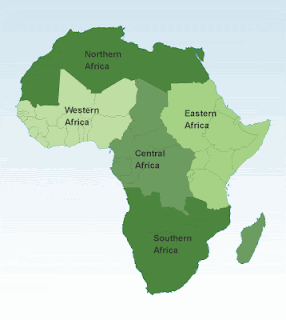Commodities exports are highly susceptible to sharp
changes in demand and supply. Spiky price changes remain a constant feature
since the market is hardly in control of far reaching socio-economic and
political developments in the producing and consuming nations. Real or
perceived changes in demand and supply sources could lead to sudden rise or
fall in commodity prices. Threats of unrests in the Middle East, which supplies
up to 30 percent in global crude oil; or prospects of an economic slowdown in
the US, China and Europe for example which are the major crude oil consumers,
could exert dramatic upward or downward pressure on the price of crude oil. The
same is the true for most other commodity exports and interestingly, the timing
or scale of these influential market factors are ever difficult to direct.
In July
2011, Consensus Economics, a leading macro-economic analysis firm carried out a
survey (‘Factors Affecting Commodity Prices’)which asked experts to compare and
rate the differing degrees of sensitivity with which the prices of different
commodities respond to a range of influences at every point in time in the
global market. The rating was on a scale of 0-10, with 0 indicating ‘no
influence’ and 10 signifying ‘very strong influence’. The outcome of the
survey shows some of the key factors that determine the
price of key commodities in the global market.
In this
survey, most of the respondents identified ‘Demand/business cycle’ as an
influential factor in the price of several commodities, with rating averaging
about 6.8 out of 10 in total. For aluminum, copper, steel and palladium,
respondents ranked this particular determinant 8 out of 10. The influence of
Government trade policies, was expects year end 2012 growth of around .5
percent, its weakest growth in about five years.
Highly
export dependent, the Chinese economy has been hit by troubles in the euro
zone, the US and others, which has dampened exports and investment in flows.
The company is also struggling with a bust in its hitherto bubbling property
market.For the net
exporters, while the prices of some of the most essential commodities,
especially agricultural and energy products have remained relatively favourable
since the euro zone debt crisis, the magic has not been due to a strengthening
in demand but to production and supply fears and the activities of speculators.
These ‘satisfactory’ price level (at around $100 per barrel) explain, for
example, why OPEC has left crude oil production figures unchanged since the
beginning of the year.
But for how
long will the ‘satisfactory’ price levels of these and other commodities be
sustained, given the slowing economic fortunes In China?
For commodity export dependent countries, any bad news from their
biggest market, China, is indeed bad news.
Experts
opine that China will be the main determining factor of future of commodity
demand and price; first, for the size f the economy which is now the second
largest after the United States; and for its stage of socio-economic
development which creates strong demand for commodities. Also, the sheer size
of its population-about 1.3 billion people with a rapidly growing middle class
makes it the key consumption market to watch.
A report
published n the wall street journal (“As China Goes, So Go commodities’ by Liam
Pleven; December 14, 2011) places the direction of global commodities demand
and prices at the door steps of a China. “You want to know where the global
commodities markets are heading in the coming years? Then it’s probably best
that you remember a single word: China”
According
to the report, no single factor is likely to have a more far-reaching impact on
commodities markets over the next few years than the direction of the Chinese
economy. If China maintains its traditional full speed growth, demand for the
prices of commodities will remain bullish. If the current marginal slowdown is
sustained, say at between 7-9 percent, commodities will also experience
relative market stability. But if the Chinese economy experiences a hard
landing, say, to the region of 4-5 percent, so will the commodities market,
Particularly vulnerable are commodities highly consumed by China, including
crude oil, copper, steel, coal, among others.
more
likely scenarios in the view of most experts is a moderation in the economic
expansion of China, rather than a hard landing, which is good news for
commodity exporters.
Another good
news for African commodity exporters is that several other ‘Chinas’ are in the
offing. Emerging markets such as India, Brazil, Indonesia, Russia and Turkey
have the potential, like China, to boost global demand for commodities in the
coming years.
Other potential
factors that could determine the future of commodity market include the outlook
for technological evolutions, including bio-fuel technology; developments in
financial markets; new investments in commodities production; exchange rates
dynamics (especially in relation to the US dollar); growth in global
population, employments in major commodity export zones; natural factors
including climate change and its impacts, among others.
Culled from Zenith economic quarterly July 2012 and written by Eunice Sampson










